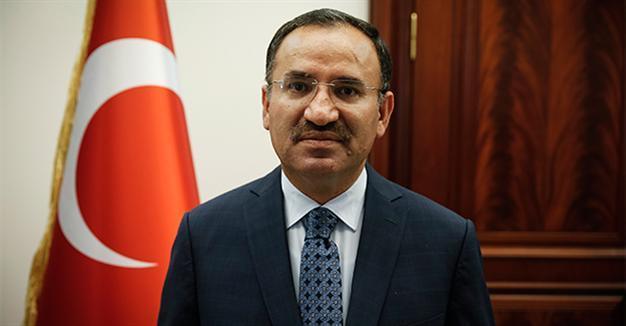Justice minister to decide whether to try opposition leaders, MPs
ANKARA

AA photo
Turkey’s justice minister is set to decide whether to try a number of opposition lawmakers, including party leaders, as ministerial approval is required for trials regarding “insults to the president” and “insults against Turkey, the Turkish nation or Turkish government institutions.”
Justice Minister Bekir Bozdağ will have the final word on whether to prosecute 52 MPs for violating controversial Article 299 and 19 more under Article 301. The former article penalizes insults against the president while the latter is concerned with insults against Turkishness, but the minister has to approve the process before lawmakers can be prosecuted on either account.
The possibility of prosecution arose after President Recep Tayyip Erdoğan approved a much-discussed bill that lifts the immunities of lawmakers in the event that they are subject to summaries of proceedings in parliament. The amendment paved the way for the trial of 152 legislators in a total of 799 cases.
Only four lawmakers from the Peoples’ Democratic Party (HDP) escaped summaries of proceedings, while there are summaries of proceedings against the leaders of all three opposition parties holding seats in the national assembly.
According to reports, there are 35 cases regarding 19 lawmakers for violating Article 301. A total 17 of these deputies are HDP MPs, whereas two are from the main opposition Republican People’s Party (CHP).
Meanwhile, CHP leader Kemal Kılıçdaroğlu faces the highest number of cases for “insulting the president,” although HDP deputies as a whole again top the list.
Some 52 deputies, including 27 HDP lawmakers, 23 CHP lawmakers and two deputies from the opposition Nationalist Movement Party (MHP), face a total 104 cases for allegedly insulting Erdoğan.
Kılıçdaroğlu alone has 14 cases against him on this charge, followed closely by MHP chair Devlet Bahçeli and HDP co-chair Selahattin Demirtaş with seven cases each.
The controversial bill drew criticism for aiming at forcing the HDP, which is focused on the Kurdish issue and is the third largest party in the legislature, out of parliament by bringing a raft of “terrorism” charges against the party’s MPs.
The bill was also criticized in a June 22 resolution adopted by the Parliamentary Assembly of the Council of Europe (PACE) regarding Turkey’s democratic institutions whereby Turkey was urged to revise its law on terrorism “in line with European standards.”
“Even though MPs from all political groups are concerned, the assembly notes with concern that this decision disproportionately affects the opposition parties, in particular the Peoples’ Democratic Party, many of whose members have been charged for their statements under the Anti-Terror Law,” the resolution said.
